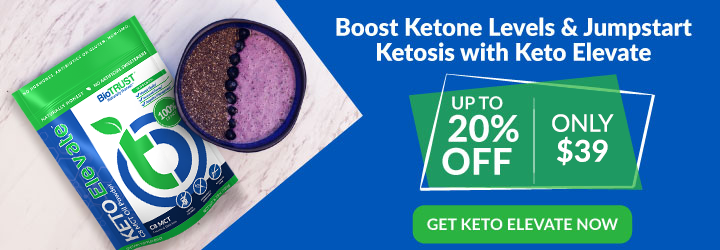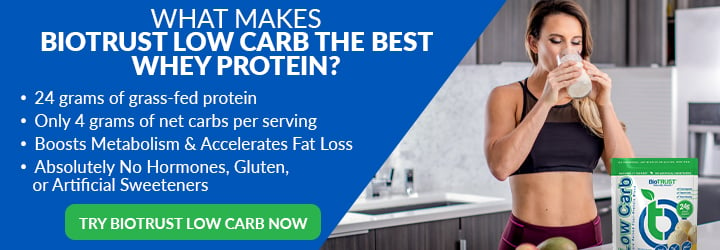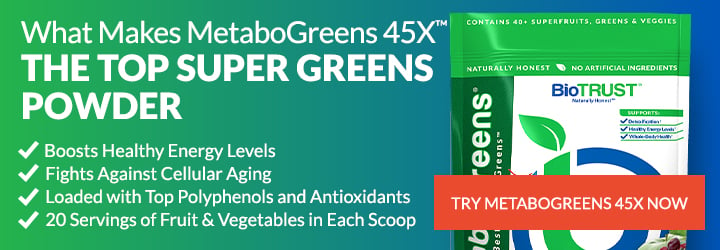The 27 Best Diets for Weight Loss in 2021 (and 3 to AVOID)

We made it! We’re rounding the corner and getting ready to say goodbye, fair well, and perhaps “Forget you!” to the year that was 2020. For the vast majority of people, it’s a year we’re overjoyed to have made it through. We’re ready for a fresh, new start. And for a lot of us, that means we’re ready to stop the stress eating (and baking), wear something other than sweatpants (or “athleisure” gear of choice), do something other than “Netflix and Chill,” and get active, healthy, and fit (again). In other words, it’s time to drop the quarantine pounds. That probably also means you’re looking to start a new diet—preferably one of the best diets for weight loss rather than just the latest fad that will only lead to rebound weight gain (often more than you lost) a couple of weeks or months down the road.
Despite what you might have been led to believe, there’s no one-size-fits-all diet. People have different goals, preferences, and bodies. So, the weight-loss diet that works best for you may not be the best diets for weight loss for your partner, friends, or co-workers.
Fortunately, there’s a variety of diets to choose from to find the best one for your needs, goals, and preferences. No matter which diet you choose, rest assured, eating healthfully—that is, a diet that emphasizes nutrient-dense, whole foods—can help you feel better, enjoy greater energy, and (as long as it leads to proper caloric intake) help you lose weight.
In today’s article about best diets in 2021, we will cover:
- Best Diets for Weight Loss
- Best Fasting Diets
- Best Diets for Overall Health
- Best Plant-Based Diets
- Trendiest Diets in 2021
- Diets for Specific Needs
- 3 Diets to AVOID
Best Diets in 2021
Best Diets for Weight Loss
1. High-Protein Diet: Want to improve appetite control, reduce caloric intake, decrease cravings, and improve diet quality while maintaining (or better yet, building) calorie-burning lean muscle? A high-protein diet is a highly effective tool to help reach those goals while also helping you lose fat. Learn more here:
- High-Protein Diet: What Are the Benefits (and is it right for you)?
- See All the Powerful Health Benefits of High Protein Diets.
2. The Ketogenic Diet (or Keto, for short): One of the most popular diets for weight loss is the keto diet. This very-low-carbohydrate, high-fat, moderate-protein dietary approach is all the rage in many circles, and indeed, some research trials have shown that it may lead to greater weight loss than low-fat interventions. Learn more here:
- What Is the Ketogenic Diet? A Beginner’s Guide
- A Deep Dive into the Ketogenic Diet Benefits
- Is the Keto Diet Actually Good for Weight Loss (or just hype)?
- How to Start a Keto Diet? (Complete Keto for Beginner’s Guide).
3. Part-Time Keto: While the benefits of the keto diet are downright alluring, it can be a bit tough to stick to, if not entirely impractical, for many folks. Enter part-time keto. In fact, intermittent ketosis may not only be more effective than full-on, full-time keto, it might also be a more appropriate approach for many otherwise healthy people. Advantages include improving metabolic flexibility while being more flexible to follow. It’s also more supportive of athletic performance. Learn more here: Intermittent Ketosis: Can You Be Part-Time Keto?
4. Low-Carb Diet: Now that we’ve learned dietary fat isn’t the demon it had long been made out to be, many people have kicked another macronutrient to the curb: Carbs. Yes, cutting carbs can help folks lose weight, but that doesn’t make all carbs bad. Learn more about this diet here:
- How to Start a Low-Carb Diet? (see our beginner’s guide)
- Is a Low-Carb Diet Healthy (or just more dieting hype)?
5. Slow-Carb Diet: If ketogenic or low-carb diets just seem too hard (we get you!), then going slow-carb may be the answer for you. This diet, which comes from Tim Ferriss, provides simple rules and menus. That, however, doesn’t mean it’s easy for everyone. Learn more here: Everything You Need to Know About the Slow-Carb Diet.
6. Carb Cycling: Rather than vilifying any macronutrient, carb cycling allows you to eat more carbs on some days and less on others. Basically, you match carb intake to your activity levels, an approach that some people use so they can “have their cake and lose weight too.” Learn more here: What Is the Carb Cycling Diet? And Will It Work for You?
While the above are some of the best diets for weight loss in 2021, the usual caveats still apply. No matter which diet you follow, you’ll still need to ensure you’re consuming an appropriate amount of energy to support your goals. In other words, if you want to lose fat, you have to have an energy/calorie deficit consistently, over time. And of course, we’re all individuals—the diet that works best for you may not work as well for others (and vice versa).
Best Fasting Diets in 2021
7. Intermittent Fasting: Although voluntary fasting has been around since antiquity, it’s only now gained a ton of traction for weight loss. Broadly speaking, intermittent fasting (IF, for short) refers to going extended periods (typically 12 to 48 hours) with little to no caloric intake. There are, however, a number of different subclassifications, including time-restricted feeding, alternate-day fasting, periodic fasting, and fasting-mimicking diets. Learn more here:
- Health Benefits of Intermittent Fasting (Does it Work? Is it Safe?)
- The Benefits of Intermittent Fasting: The Beginner’s Guide
- What Is Time-Restricted Feeding (and how does it work?)
- 16:8 Intermittent Fasting—Benefits + How to Get Started
- Intermittent Fasting for Women: Does It ACTUALLY Work?
8. Dry Fasting: If you are already well-experienced in fasting, you may be ready to take it to another level: Dry fasting. This type of fasting gives a definitive answer to the question, “What can I eat or drink on this fast?” Absolutely NOTHING. It is, of course, only meant to be temporary—lasting no more than 16 to 20 hours—does not come without risks, and certainly isn’t recommended for everyone. Learn more about this intense fasting diet here: What Is Dry Fasting? And Is Dry Fasting Even Safe?
Fasting, whether intermittent, time-restricted, or prolonged, has gained a lot of popularity as it can result in significant weight loss and may help support greater health by promoting metabolic flexibility and autophagy. These types of diets, however, aren’t right for everyone. If you do decide to incorporate fasting as part of your diet, please do your research and ease in to enjoy the greatest benefits while sidestepping the side effects.
RELATED: Collagen Doesn’t Work (Unless…)
Best Diets for Overall Health in 2021
9. Mediterranean Diet: There is one diet that is consistently ranked #1, year after year, by health experts (such as those weighing in on behalf of U.S. News): The Mediterranean Diet. It’s not really a “diet,” though, as it’s more of a healthy lifestyle approach that focuses on mindful eating, sound nutrition (eating whole, natural foods), and daily activity. It can also be adapted to fit your personal preferences. Learn more about this best diet in 2021 (and every other year) here: What Is the Mediterranean Diet? See the Beginner’s Guide.
10. Ayurvedic Diet: While the goal of many diets is weight loss, the Ayurvedic Diet is instead focused on promoting health, vitality, and overall wellness based on the proverb: “When diet is wrong, medicine is of no use. When diet is correct, medicine is of no need.” This diet has a long history and promotes eating mostly whole, minimally processed foods while practicing mindful eating rituals. Learn more about this ancient eating practice here: Ayurvedic Diet: See the Benefits, Downsides, and How It Works.
11. Satiating Diet: Many diets are all about restriction—whether it’s calories, foods, food groups, or portion sizes. They can be difficult to follow, often leaving you feeling hungry and dissatisfied (explaining why so many diets fail). The Satiating Diet, on the other hand, is all about helping you feel full and satisfied while decreasing hunger and boosting metabolism. Learn more here: What Is the Satiating Diet? And Does It Actually Work?
12. Clean Eating: Clean eating is a phrase that’s thrown around a lot, but what is it? The basic premise is to consume mostly healthy, whole, minimally processed foods. In other words, you’ll skip foods that are processed or refined to improve body weight and health. Learn more here: What Is Clean Eating: A Beginner’s Guide.
13. Intuitive Eating Diet: There is an understandable backlash against what’s become known as “diet culture,” as many people have been failed by diets year after year when it comes to achieving long-term results. If you’re looking for an alternative, then the anti-diet or un-diet of “intuitive eating” may be more appealing. It focuses on learning how to trust your own body, eating mindfully, and being free to enjoy foods (all foods). Learn more about this non-diet here: What Is the Intuitive Eating Diet? And Does it Work?
Many ways of eating can help you live your healthiest, best life. At the foundation is focusing on real, whole foods that nourish your body and soul. Combine that with a more active lifestyle, and you really can reach your goals of feeling more vibrant and energized. And, if need be, you may drop a few pounds while you’re at it.
Best Plant-Based Diets in 2021
14. Vegetarian Diet: Moving toward plant-based diets is undoubtably growing in popularity (by over 250% in the last decade) for a variety of reasons. Plant-based eating is promoted for health benefits, sustainability, environmental concerns, and more. There are seemingly endless variations of vegetarianism, and some are clearly better than others. Take a deep dive and learn more about vegetarian diets: Is a Vegetarian Diet REALLY Healthy? (you may be surprised).
15. High-Protein, Plant-Based Diet: With all of the available plant proteins you can load onto your plate, you don’t necessarily need to rely on animal products to ensure your body gets the protein it needs to enjoy the benefits of higher-protein diets, such as supporting a healthy metabolism; bigger, stronger muscles; healthy appetite management, and even healthy weight management. Learn more about this great take on both plant-based and high-protein eating here: What Is a High-Protein, Plant-Based Diet? A Beginner’s Guide.
16. Pescatarian Diet: While the pescatarian diet is not strictly plant-based—as it advocates regular consumption of fish—it does forgo land animal products, like red meat and poultry. Yet, the diet typically recommends seafood only two to three times per week, so much of the diet is made up of plant foods. Learn more about this seafood diet here: I Ate a Pescatarian Diet for 14 Days and This Is What I Found.
17. Flexitarian Diet: Do you want to eat more of a plant-based diet but don’t want to give up meat altogether? Then the Flexitarian Diet may be what you’re looking for. This mostly-vegetarian diet allows occasional meat or fish and is appealing to people who are interested in cutting back on animal products for health reasons, want to reduce their environmental impact, or even want to cut grocery costs. Learn more about this flexible plant-based diet here: What Is the Flexitarian Diet? Here Is a Beginner’s Guide.
Best Trending Diets in 2021
18. Paleo Diet Plan: The Paleo diet has been trending for nearly a decade now as the antithesis of the modern Western-style diet. In short, the diet encourages eating whole, minimally processed foods that you could hunt or forage in their most natural forms. Learn more here: What Is the Paleo Diet Plan? A Beginner’s Guide.
19. Whole 30 Diet: Many folks consider Whole 30 as Paleo kicked up a notch. While that’s a fairly accurate, a more appropriate description is that Whole 30 is an elimination-style diet that’s ultimately intended to be personalized to you and your goals, needs, preferences. Learn more about this “extreme Paleo” diet here: What Is the Whole 30 Diet? A Beginner’s Guide.
20. Sirtfood Diet: One of the newest, hottest diet trends in 2020 was the Sirtfood diet. It allows red wine and chocolate and was also credited with Adele’s recent weight loss. Learn more about this hot new trend here: Sirtfood Diet: What Is It? And Whey Do Celebs Swear by It?
Best Diets for Specific Needs
There are reasons to start a new diet other than to lose weight. Doctors, researchers, and health experts have created a variety of diets to address specific health needs, such as concerns related to heart health, high blood pressure, gut health, and energy levels:
21. DASH Diet: The word DASH stands for “Dietary Approaches to Stop Hypertension,” so it’s pretty obvious this diet was designed to help reduce blood pressure. High blood pressure seriously increases the risk for heart disease and stroke, which are the leading and third-leading causes of death, respectively, in the U.S. Learn more about this diet and how it helps combat the silent killer here: What Is the DASH Diet? A Beginner’s Guide.
22. Anti-Inflammatory Diet: Many in the scientific community believe that chronic low-grade “metaflammation” is at the heart of most—if not all—non-infectious, lifestyle-driven health complications. Along those lines, what you eat can have a dramatic effect on inflammation and, therefore, overall health. Learn more here: Anti-Inflammatory Diet: How to Fight Inflammation with Food.
23. TLC Diet: The Therapeutic Lifestyle Changes Diet, or TLC Diet, was created by the National Institutes of Health’s National Cholesterol Education Program to cut cholesterol and promote heart-healthy eating. Learn more here: What Is the TLC Diet? Here’s a Beginner’s Guide.
24. Adrenal Diet Plan: People tend to seek out an adrenal diet plan for two reasons: 1) to help with adrenal fatigue; 2) to help reduce stubborn belly fat. Fortunately, the adrenal diet plan can help with both scenarios as it advocates nourishing the mind and body with healthy foods, movement, rest and relaxation, social connections, and recharging interventions. Learn more about how to address stress with this diet here: Adrenal Diet Plan: How It Works to Help Reduce Body Stress.
25. Low FODMAP Diet: Digestive discomfort is familiar to many people, at least from time to time, who experience bloating, gassiness, heartburn, abdominal discomfort, or worse. If you find that foods—especially carbohydrates—cause digestive distress, you may want to consider a low FODMAP Diet. Learn more here: What Is the Low FODMAP Diet? A Beginner’s Guide.
26. Low-Histamine Diet: If you suspect you may have a histamine intolerance, are being bombarded by allergens, or just want to try to decrease allergy symptoms, there are simple dietary changes that may help. Learn more here: What Is the Low-Histamine Diet? Here’s the Science Behind It.
27. Home Energy: This diet will not help you lose weight nor will it necessarily make you healthier, but it could end up saving you money while making you more comfortable at the same time. Learn more about how to improve your home’s fitness here: How to Put Your Home on an Energy Diet Plan (20 Steps).
3 Diets to Avoid in 2021
There are numerous diets on this list that can help you lose weight, increase energy levels, or just feel (or be) healthier. Other diets, however, are best left in the dust heap of years past. Here are the best diets to avoid in 2021.
Here’s to finding the best diet FOR YOU in 2021—whether your goal is to lose weight, take on a health issue, feel better, or even save money and be more environmentally sustainable. You’ve got this!








 7 Signs Your Body is Seriously Low on Collagen (not just wrinkles)
7 Signs Your Body is Seriously Low on Collagen (not just wrinkles) Health Expert: "Turmeric Doesn't Work (unless...)"
Health Expert: "Turmeric Doesn't Work (unless...)" 3 Warning Signs Your Probiotic Supplement is a Total Waste
3 Warning Signs Your Probiotic Supplement is a Total Waste

